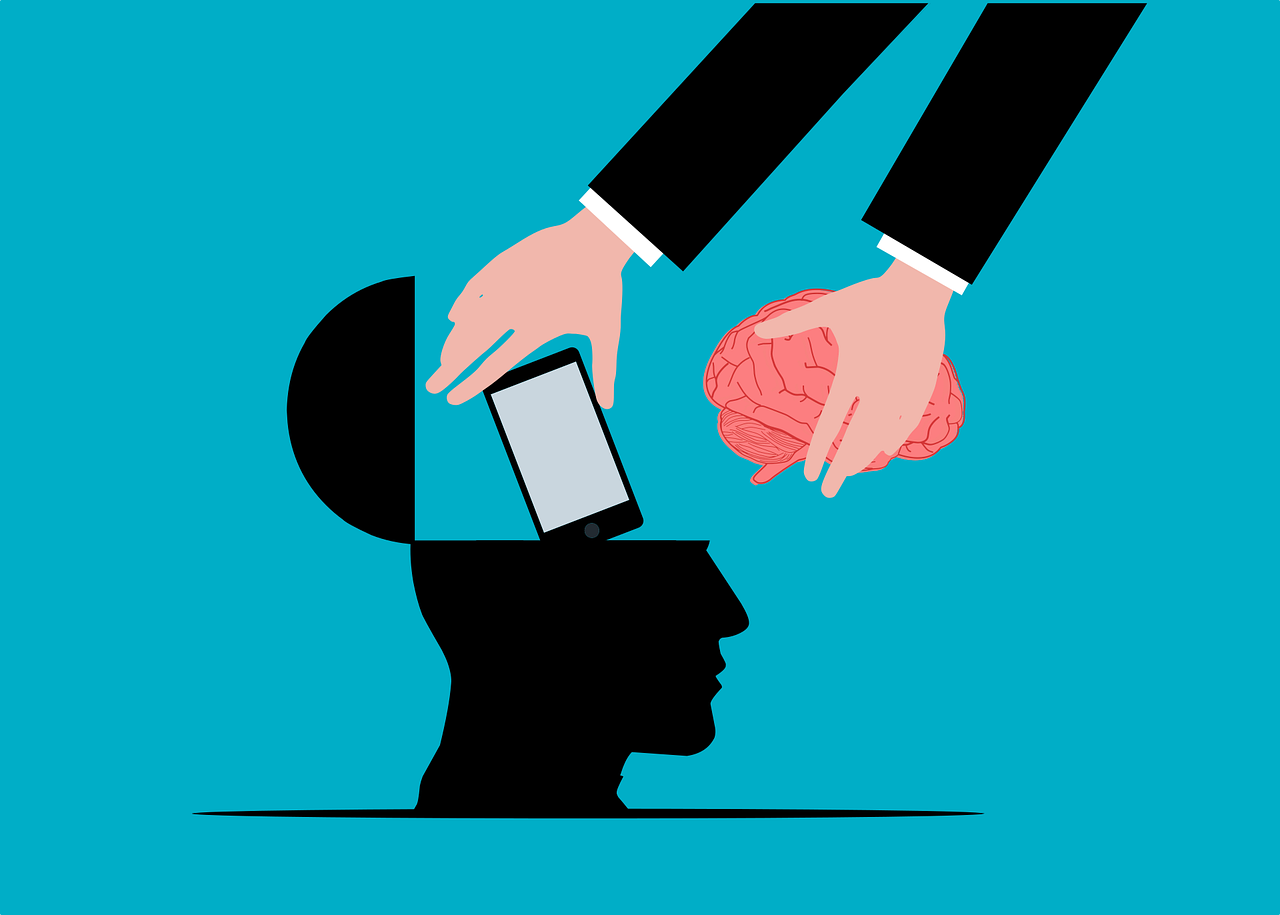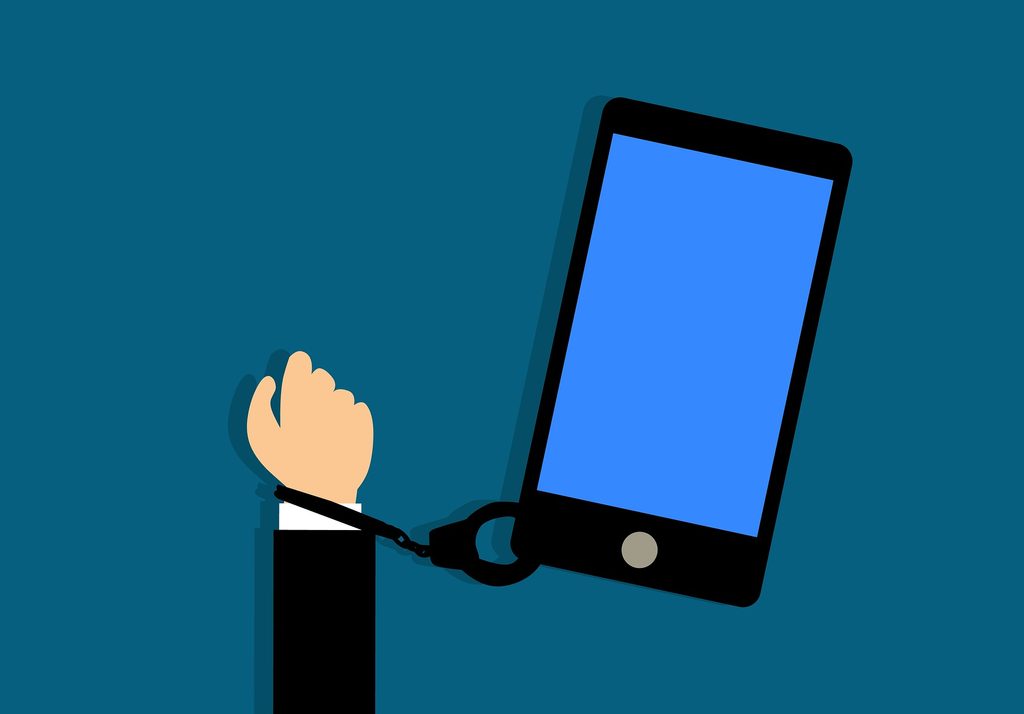If you're wondering how to diagnose and overcome a smartphone addiction, you've come to the right place. According to The Addiction Center, smartphone addiction is, "...the obsessive use of a smartphone. The behavioral addiction is often dubbed as “nomophobia,” or the fear of being without a mobile device."
We discuss the signs, symptoms, and treatment options for people with cell phone addiction. We also explore whether this condition is reversible or not really.
Signs Of Phone Addiction
It can be hard to stop using your smartphone.
While you may have valid reasons to do so, if you find that your use of your smartphone is increasing, you may need professional help to break the cycle. Perhaps you are constantly checking your social media accounts or responding to missed messages on your phone.
If you can't seem to find a way to cut back, you should consider getting help from a counselor or doctor. Recent research has established criteria that can indicate whether a person is suffering from a smartphone addiction.
Also, researchers have found that ten to thirty percent of children and young adults report problems with their smartphone use. Smartphones also interfere with sleep and are associated with poor health. Young adults are most likely to suffer from smartphone addiction. For specific advice about a youth's addiction to smartphones and screen time, we've written a specific blog post on this topic, 8 Tips for Battling Screen Time and Digital Addiction this Year.

The Symptoms
A smartphone addiction can lead to many different problems.
A person addicted to their phone may have trouble concentrating and accomplishing their daily goals. They may also find it difficult to connect with people.
A person may find that his eyes start to itch when looking away from the phone, and the muscles behind the eyes may feel as if they are burning.
If you find yourself constantly looking at your phone, you may be suffering from smartphone addiction. You might even find yourself ignoring friends and family because you are on your phone.
Not only is this a poor habit, but it also results in a person's mind being overloaded by constant phone use. This, in turn, can lead to an individual's loss of focus, which can lead to various mental health problems.
And excessive smartphone use can cause changes in the prefrontal cortex and networks that connect it to the prefrontal cortex.
People can experience anxiety when they are away from their smartphones. If a young person is experiencing anxiety without their smartphone, it may be a sign that they are experiencing exactly this - smartphone addiction.
People suffering from smartphone addiction may have severe physical symptoms that mimic panic attacks. These symptoms include trembling, hyperventilation, and even nausea. In extreme cases, people may even collapse.
If this happens, it's best to see a mental health counselor for help. Limit the time you spend on your smartphone. "Cold turkey" method may not work for everyone, so try to limit your use to a few hours per day.
Moreover, try to use your phone for work-related purposes, rather than for personal use and base your limits off that.
Headaches are another sign of smartphone addiction. The pain is caused by the constant straining of the neck and can radiate into the head. A person suffering from smartphone addiction is likely to experience headaches when they stop using their phones.
The pain usually disappears on its own after a few days, but if you don't stop using your phone, it may recur.
Prevention
Before beginning any treatment plan, you need to assess the extent of your smartphone addiction.
Figure out what is causing your problem and whether you have emotional triggers that make you want to use your phone. Once you know these things, you can begin to work on solutions. The best way to treat phone addiction is to find healthier alternatives to using your smartphone.
Keeping a record of your smartphone usage can help you figure out if you're tempted to use it more often than you should.
Treatment Options
If you are worried about your smartphone usage, there are several treatment options available.
The first step is to seek help from a doctor or therapist. You can also try a self-help guide or a digital detox program.
Smartphone addiction is similar to other behavioral addictions, and it is important to recognize the signs of problem use. The main symptoms of problem use include loss of control and real damage to your life.
Give it Up!
Another option is to give up using your smartphone altogether. This can be difficult, especially for people who are bored or lonely.
However, you can try to replace your smartphone use with healthy activities, such as playing a board game or playing a video game.
A fun thing to try after giving up your phone is to see how good your general knowledge is when you don't have google at your fingertips. There are loads of fun general knowledge quizzes to help you with that - but don't take them with your phone nearby!
Another option is to trade your smartphone in for a basic phone that will not be accessed by the internet.
Get Cognitive Therapist Advice
Cognitive behavioral therapy involves learning how to control your impulses and behavior. This therapy aims to improve your attention span, time management, and social interaction. It can also help repair damaged relationships.
This therapy can be used both in an inpatient and outpatient setting and is customized to the specific needs of the patient.
Alternatives
Other treatment options for smartphone addiction include music therapy, therapeutic recreation, art therapy, and exercise rehab. Some studies have also found that smartphone use is more common in women than in men.
Furthermore, smartphone functions are changing rapidly. For example, smartphones with high performance games could increase the risk of smartphone addiction. It's important to consider all the possible consequences of this behavior before seeking treatment for smartphone addiction.
Reversibility
Smartphone addiction can be difficult to overcome on your own.
This is because it involves many aspects of our daily lives and becomes an integral part of our lives. We may even experience stress when we don't have our smartphones.
The first step in understanding smartphone addiction is to identify common smartphone behaviors. These behaviors may include specific Internet uses, gaming, and social networking.
These behaviors should be explored in the context of the individual's motivations, gratifications, and sociocultural context. It is important to distinguish smartphone addiction from other forms of digital addiction, such as gambling or social networking.

There are numerous studies that have focused on the topic of smartphone addiction, but there is still no definitive answer on whether the disorder is reversible.
The main problem with these studies is that they lack longitudinal conclusions that can confirm the stability of the disorder. The screening instruments used for diagnosis are not reliable and have high rates of false positives.
This lack of consistency in the methodology, measurement, and diagnostic criteria is another drawback of smartphone addiction research.
While we wait for the science backup, addiction can also affect physical health. It may be a sign that you're lacking time to engage in face-to-face relationships, and may be neglecting important aspects of your life such as work and school.
When it gets out of hand, smartphone users can easily forget to engage in social activities.
Conclusion
The best way to overcome an addiction is to find healthier alternatives to using your smartphone and to keep track of your phone usage. If you find that you spend most of your time on your smartphone, it is important to monitor how much time you're spending on it.
You can also talk to a mental health professional if you think you might be addicted to your phone. Science doesn't have it all yet, but you can get the treatment you need to recover and live a healthy life.
